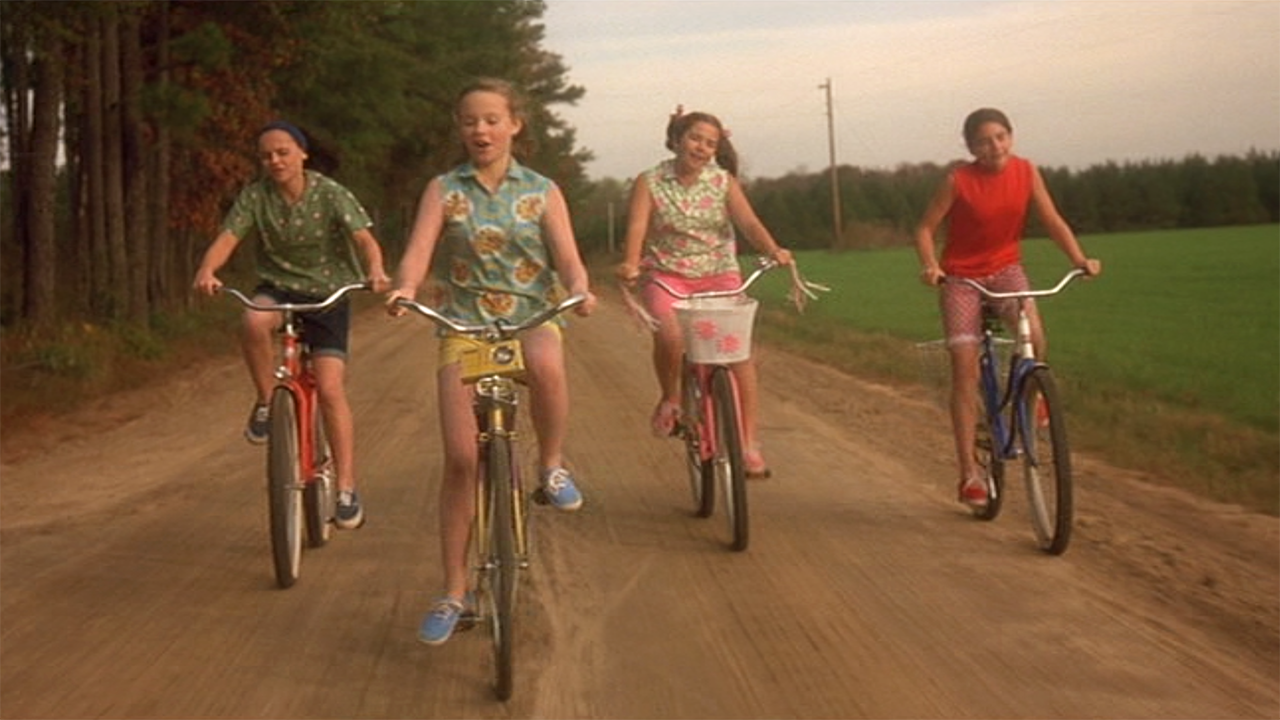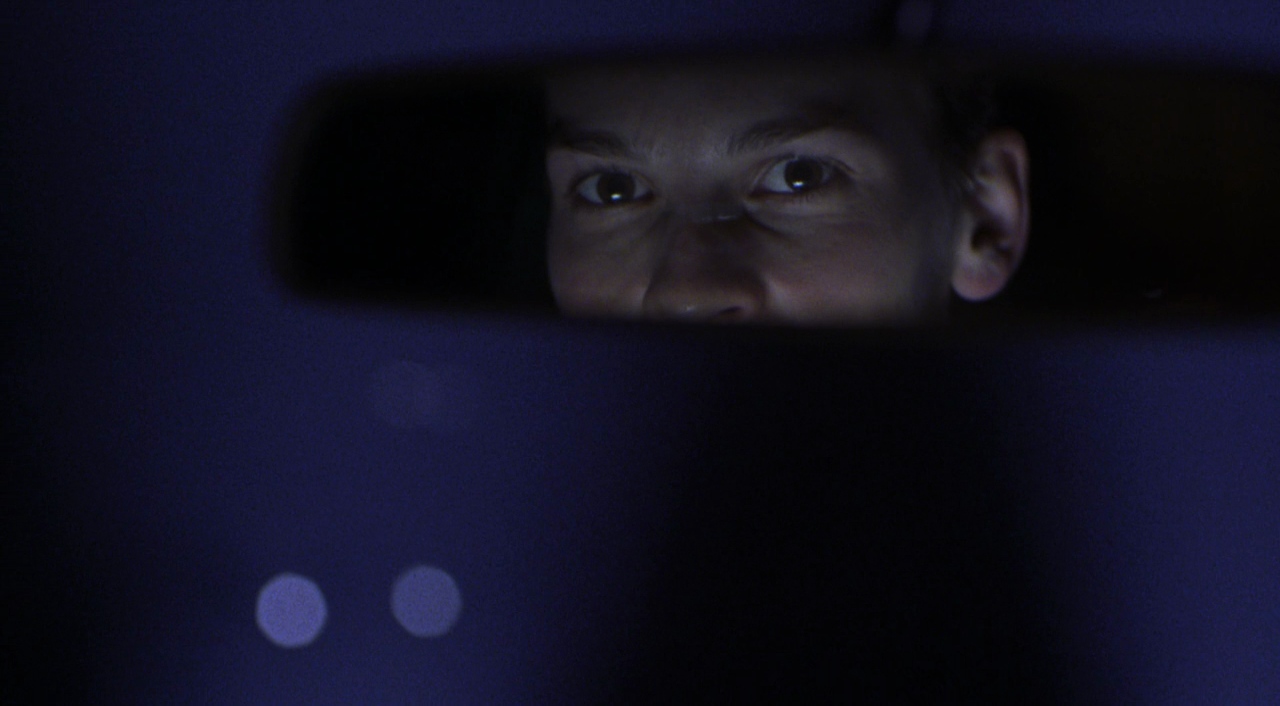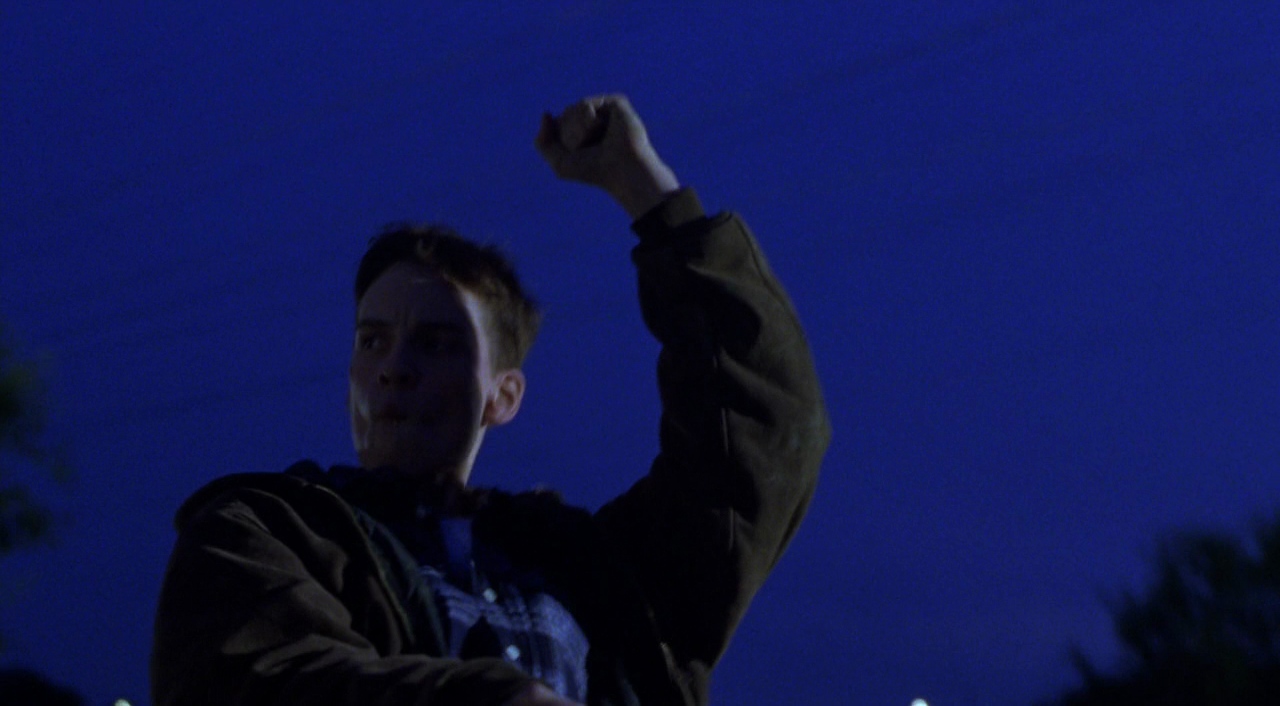nov 13, 2024
nov 13, 2024
EVERY NOW & THEN
BOYS DON’T CRY
Fawzy Taylor
︎ Audio version
︎Read by Shia Conlon
I was raised predominantly by a television set. My mother was raised by her mother’s cruelty and the fanged resilience of her six feral sisters. My mother viewed her hands-off approach with me as a mercy, a generosity even, and maybe it was, given her stunted capacity for care. But god it was lonely. We moved a lot. 14 apartments, seven cities, two states by the end of high school. My memory primarily organizes itself chronologically based on which apartment we were living in and secondarily by what I was watching on tv. It is hard to remember years any other way. I remember the apartment, I can remember a tv show that kept me company, I can begin to remember where the blue shadows fell as the sun set and what decibel of loneliness clanged inside my small body.
If I was watching Sesame Street on a bed next to a window, we were in the attic apartment where I woke once in the middle of the night to my mother howling hysterically in the bathroom. The phone’s cord snaked under the bathroom door as she screamed and pleaded with someone, a boyfriend, not to leave her. I was five and somehow in that moment knew my mother could kill herself. She sobbed in an abandon that didn’t include me. I spent the rest of my childhood trying to convince my mother I was easy to live for and bracing for the possibility that I wasn’t.
If I was watching Sesame Street on a bed next to a window, we were in the attic apartment where I woke once in the middle of the night to my mother howling hysterically in the bathroom. The phone’s cord snaked under the bathroom door as she screamed and pleaded with someone, a boyfriend, not to leave her. I was five and somehow in that moment knew my mother could kill herself. She sobbed in an abandon that didn’t include me. I spent the rest of my childhood trying to convince my mother I was easy to live for and bracing for the possibility that I wasn’t.

If I was watching The Simpsons with my back against a wall on a TV in front of a bay window that let sun in all day, sun that sat next to me and warmed my skin, I was six and we were in the blue apartment behind a Burger King. The one we left one morning and found our downstairs neighbors in their underwear on the front lawn looking for earthworms. I thought they were wild and friendly, my mother said it was drugs.
I sat with television from the moment I came home from school until well after my mom drifted under the weight of a nine-hour work day and a six pack, after Diane Sawyer signed off, after the raunchy adult animated shows rolled their credits, well after the infomercials when the screen would colorblock signaling the end of programming. I was seven and transfixed, pinned by a sweaty desperation that I might pixelate into the prefabricated sets of my tv nuclear families and their safe, formulaic rhythms. The laugh tracks of the 90’s and early aughts were some of the first normalcy my young nervous system knew it could rely on. I loved television and movies. I relied on them to eat up hours, days, entire years of loneliness. They were the world I could survive within the world I couldn’t.
I sat with television from the moment I came home from school until well after my mom drifted under the weight of a nine-hour work day and a six pack, after Diane Sawyer signed off, after the raunchy adult animated shows rolled their credits, well after the infomercials when the screen would colorblock signaling the end of programming. I was seven and transfixed, pinned by a sweaty desperation that I might pixelate into the prefabricated sets of my tv nuclear families and their safe, formulaic rhythms. The laugh tracks of the 90’s and early aughts were some of the first normalcy my young nervous system knew it could rely on. I loved television and movies. I relied on them to eat up hours, days, entire years of loneliness. They were the world I could survive within the world I couldn’t.
“I was seven and transfixed, pinned by a sweaty desperation that I might pixelate into the prefabricated sets of my tv nuclear families and their safe, formulaic rhythms.”
Television is a portal that takes everything but your body. It takes your brain, your feelings and whatever sits in your periphery. It takes your nervous heart. The TV portal dissolves your mother’s neglect like smoke through pillars of light. It took me into living rooms where people talked and laughed and cried together; where there was play and conflict and resolve. It took me away from the silent tension of my mother twirling her hair at the kitchen table chain-smoking through an entire weekend.
Whenever bearable television ran out I was quick to throw a black cassette into the VCR. I watched a handful of movies on repeat: The Lion King, Matilda, Now & Then. Movies about kids surviving their abandonment. At home I learned to be quiet and unneeding. Through the portal, I learned what else in life might be possible.
“Television is a portal that takes everything but your body... Through the portal, I learned the vocabulary of a life.”
“Television is a portal that takes everything but your body... Through the portal, I learned the vocabulary of a life.”
MOVIE: NOW & THEN
In the blue house behind the Burger King, I ran the VHS tape of Now & Then to shreds. It was about a group of four white midwestern girls traversing the summer of 1970. The movie takes place in Indiana, where the corn belt and the bible belt converge. Indiana, where my own real life mother and her real life sisters drank beer and knocked each others’ teeth out. In the movie, twelve-year-old Roberta, played by Christina Ricci, lives in the Gaslight Addition, with her widowed father and three undomesticated brothers.
I watched the movie repeatedly for one scene: Roberta is in her bedroom getting dressed to meet her friends. She pulls on cut off shorts, ties her hair up, and then stands in front of her dresser’s mirror, takes a roll of duct tape from her top drawer and expertly wraps it around her chest. Disgust settles on her face. She feels inconvenienced and betrayed by her body. She winds the tape as part of her morning regimen and pulls on a flannel to disguise what the tape cannot.
I watched Now & Then repeatedly just to watch Roberta bind her breasts. To watch her certainty and to know her revulsion. Roberta was the first person to tell me that my confusion and displeasure with my own body might not be only mine. I had been practicing peeing standing up since kindergarten. When I thought of a futureself, that self was not a girl. No one said gay or trans but Roberta’s tension was mine. Whatever word she wasn’t saying, I was also not saying. I had Roberta for a decade where I had nothing else.
I watched the movie repeatedly for one scene: Roberta is in her bedroom getting dressed to meet her friends. She pulls on cut off shorts, ties her hair up, and then stands in front of her dresser’s mirror, takes a roll of duct tape from her top drawer and expertly wraps it around her chest. Disgust settles on her face. She feels inconvenienced and betrayed by her body. She winds the tape as part of her morning regimen and pulls on a flannel to disguise what the tape cannot.
I watched Now & Then repeatedly just to watch Roberta bind her breasts. To watch her certainty and to know her revulsion. Roberta was the first person to tell me that my confusion and displeasure with my own body might not be only mine. I had been practicing peeing standing up since kindergarten. When I thought of a futureself, that self was not a girl. No one said gay or trans but Roberta’s tension was mine. Whatever word she wasn’t saying, I was also not saying. I had Roberta for a decade where I had nothing else.
“No one said gay or trans but Roberta’s tension was mine. Whatever word she wasn’t saying, I was also not saying.”
“No one said gay or trans but Roberta’s tension was mine. Whatever word she wasn’t saying, I was also not saying.”

Now & Then (1995) directed by Leslie Linka Glatter
I found momentary blessed reprieve in the word tomboy. Tomboy explained my baggy pants and outsized bravado as a cultural statement and not a gendered one. It bought me time. I was lucky that tomboys ruled the ‘90s and early aughts. Darlene from Roseanne. Spinelli from Recess. Aaliyah in her oversized jeans. Amanda from It Takes Two. Missy from Bring It On. Sporty Spice, Mulan, Alex Mack, Harriet the Spy. Roberta, Roberta, Roberta. They were my approximations and I clung to the sleeves of their flannels.
MOVIE: BOYS DON’T CRY
The summer I was eleven, we rented a trailer in a town so small it bore no official population. The town held one restaurant, a German buffet slash bar, and nothing else. The trailer was owned by the folks who ran the buffet and they let us rent it after my mom broke up with her longtime boyfriend.
I was home alone while my mom worked two towns away at her first office job. I sat cross-legged on the stale orange carpet flipping through channels and watched the only movie coming in through the bent antenna, a darkly lit movie about a beautiful boy in a small small town. I had carried an unutterableness for eleven years until I saw Brandon Teena’s jawline kissed against a floral bed sheet. Brandon was kissed and the part of my life where I didn’t know what I was vaporized to dust.
After I shut the television off, I was stunned in a terrified, rageful disbelief. I finally had a word for the dissonance between my body and the world. I was whatever Brandon was. But I also had the message that how I dealt with my body, my desire, my life would need to be secret, and, even if I managed to live decently, the world could let me be killed for it. Whatever I was could be loved but also brutalized.
“Brandon was kissed and the part of my life where I didn’t know what I was vaporized.”


Boys Don’t Cry (1999) directed by Kimberly Peirce
I spent the next decade curating a femininity I prayed could protect me. I went to friends’ houses where we watched music videos and reality television like they were manuals on how to be a girl. We gossiped and flirted and applied lip balm and bought thongs because the television told us to. I latched onto guys as a distraction and challenge and hoped my act as a woman might be so convincing I could forget what I learned sitting on the floor of that tin can trailer in Victory, Wisconsin. I watched straight porn to learn how to articulate desires I didn’t have with a body I was far away from. I did an okay job for a while. I survived, which was the only point. My years of forced femininity were a brave protection. I was such a hot, trying, albeit miserable girl. I love her so much for how she didn’t die.
I came out as Trans when I was twenty-nine. In a photo caption on Instagram I wrote it’s the last day of June happy pride I’m queer, nonbinary, pansexual, a lil/lot trans and no i don’t wanna talk about it and maybe won’t ever do shit about it and that’s legit love you. Into this other screen, this new portal, I was able to tell enough of a truth, the beginning of one, to see if I might still be loved if I told it all.
I am thirty-three and I have told the whole truth and I am more loved than I ever was in my past. My chest is flat from a surgeon’s hand in Baltimore and the crowdfunding of my community. I work for two Trans bosses at a queer and Trans-owned bookstore where I frequently get to curate and ship care packages to young Trans kids all over the country. I host a monthly queer and Trans open mic where people have come out, where Trans babes flirt and share art. My little brother gets my pronouns right. My mother isn’t in my life but not because I am Trans but because she is a mean alcoholic who won’t get help. I am out to my recovery group. I get to be here now in my apartment with its slanted walls and small closets, with my dog, my flat chest, this less lonely room of a body and a life that I watch the sun blue the room in. It is a quiet full life now more concerned with altars than portals.
![Portrait of the author in 199?]() Portrait of the author in the 90s
Portrait of the author in the 90s
I came out as Trans when I was twenty-nine. In a photo caption on Instagram I wrote it’s the last day of June happy pride I’m queer, nonbinary, pansexual, a lil/lot trans and no i don’t wanna talk about it and maybe won’t ever do shit about it and that’s legit love you. Into this other screen, this new portal, I was able to tell enough of a truth, the beginning of one, to see if I might still be loved if I told it all.
I am thirty-three and I have told the whole truth and I am more loved than I ever was in my past. My chest is flat from a surgeon’s hand in Baltimore and the crowdfunding of my community. I work for two Trans bosses at a queer and Trans-owned bookstore where I frequently get to curate and ship care packages to young Trans kids all over the country. I host a monthly queer and Trans open mic where people have come out, where Trans babes flirt and share art. My little brother gets my pronouns right. My mother isn’t in my life but not because I am Trans but because she is a mean alcoholic who won’t get help. I am out to my recovery group. I get to be here now in my apartment with its slanted walls and small closets, with my dog, my flat chest, this less lonely room of a body and a life that I watch the sun blue the room in. It is a quiet full life now more concerned with altars than portals.
 Portrait of the author in the 90s
Portrait of the author in the 90s“I went to friends’ houses where we watched music videos and reality television like they were manuals on how to be a girl.”
︎ Fawzy Taylor is a trans abolitionist reader, writer and maker living in the united states @heyfawzy
